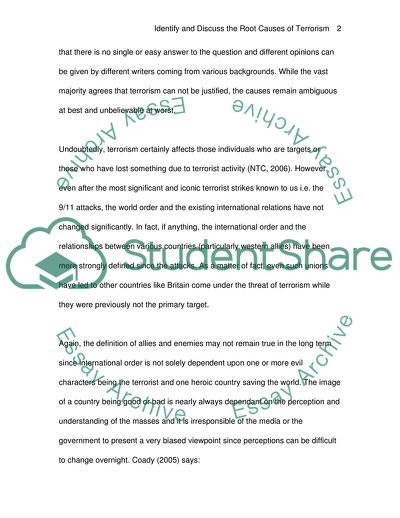Cite this document
(The Root Causes of Terrorism Assignment Example | Topics and Well Written Essays - 3000 words, n.d.)
The Root Causes of Terrorism Assignment Example | Topics and Well Written Essays - 3000 words. https://studentshare.org/social-science/1706514-identify-and-discuss-the-root-causes-of-terrorism
The Root Causes of Terrorism Assignment Example | Topics and Well Written Essays - 3000 words. https://studentshare.org/social-science/1706514-identify-and-discuss-the-root-causes-of-terrorism
(The Root Causes of Terrorism Assignment Example | Topics and Well Written Essays - 3000 Words)
The Root Causes of Terrorism Assignment Example | Topics and Well Written Essays - 3000 Words. https://studentshare.org/social-science/1706514-identify-and-discuss-the-root-causes-of-terrorism.
The Root Causes of Terrorism Assignment Example | Topics and Well Written Essays - 3000 Words. https://studentshare.org/social-science/1706514-identify-and-discuss-the-root-causes-of-terrorism.
“The Root Causes of Terrorism Assignment Example | Topics and Well Written Essays - 3000 Words”. https://studentshare.org/social-science/1706514-identify-and-discuss-the-root-causes-of-terrorism.


